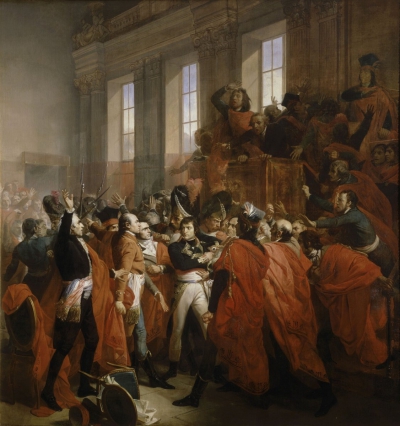Mohamed Siad Barre (Somali: Maxamed Siyaad Barre, Osmanya script: ; Arabic: ; 6 October 1910 2 January 1995) was a Somali general who served as the President of the Somali Democratic Republic from 1969 to 1991 and the third overall president of Somalia. He was given the childhood nickname Afweyne roughly referring to extraversion. Barre, a major general of the gendarmerie by profession, became President of Somalia after the 1969 coup d'tat that overthrew the Somali Republic following the assassination of President Abdirashid Ali Shermarke. The Supreme Revolutionary Council military junta under Barre reconstituted Somalia as a one-party MarxistLeninist communist state, renaming the country the Somali Democratic Republic and adopting scientific socialism, with support from the Soviet Union.
Barre's early rule was characterised by attempts at widespread modernization, nationalization of banks and industry, promotion of cooperative farms, a new writing system for the Somali language, and anti-tribalism. The Somali Revolutionary Socialist Party became Somalia's vanguard party in 1976, and Barre started the Ogaden War against Ethiopia on a platform of Somali nationalism and pan-Somalism. Barre's popularity was highest during the seven months between September 1977 and March 1978 when Barre captured virtually the entirety of the Somali region. It declined from the late-1970s following Somalia's defeat in the Ogaden War, triggering the Somali Rebellion and severing ties with the Soviet Union. Somalia then allied itself with the Western powers and especially the United States for the remainder of the Cold War, although it maintained its MarxistLeninist regime and also drew close to China.
Opposition grew in the 1980s due to his increasingly dictatorial rule, growth of tribal politics, abuses of the National Security Service including the Isaaq genocide and the sharp decline of Somalia's economy. In 1991, Barres government collapsed as the Somali Rebellion successfully ejected him from power, leading to the Somali Civil War, and forcing him into exile where he died in Nigeria in 1995 on the way to the hospital after suffering a heart attack.
A coup d'état ( (listen); French for "blow of state"), often shortened to coup in English (also known as an overthrow), is a seizure and removal of a government and its powers. Typically, it is an illegal seizure of power by a political faction, rebel group, military, or a dictator. Many scholars consider a coup successful when the usurpers seize and hold power for at least seven days.

1969Oct, 21
A coup d'état in Somalia brings Siad Barre to power and establishes a socialist republic in Somalia.
Choose Another Date
Events on 1969
- 2Mar
Concorde
In Toulouse, France, the first test flight of the Anglo-French Concorde is conducted. - 17Apr
Robert F. Kennedy
Sirhan Sirhan is convicted of assassinating Robert F. Kennedy. - 16Jul
Apollo 11
Apollo program: Apollo 11, the first mission to land astronauts on the Moon, is launched from the Kennedy Space Center at Cape Kennedy, Florida. - 20Jul
Apollo 11
Apollo program: Apollo 11's crew successfully makes the first manned landing on the Moon in the Sea of Tranquility. Americans Neil Armstrong and Buzz Aldrin became the first humans to walk on the Moon (July 21 UTC). - 30Jul
Richard Nixon
Vietnam War: US President Richard Nixon makes an unscheduled visit to South Vietnam and meets with President Nguyễn Văn Thiệu and U.S. military commanders.

 English
English  español
español  français
français  português
português  русский
русский  العربية
العربية  简体中文
简体中文 